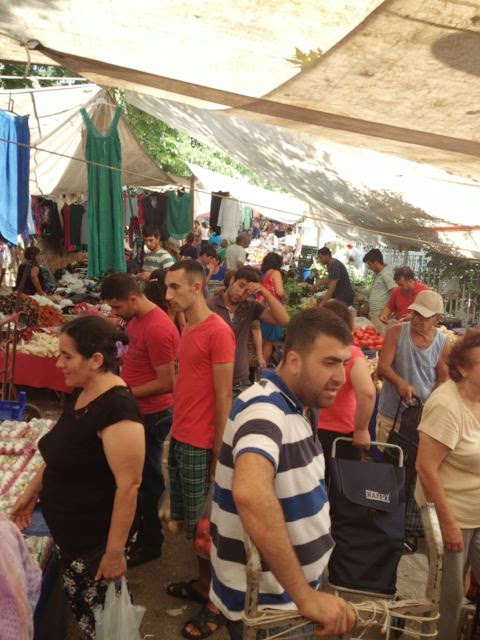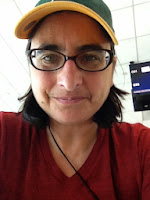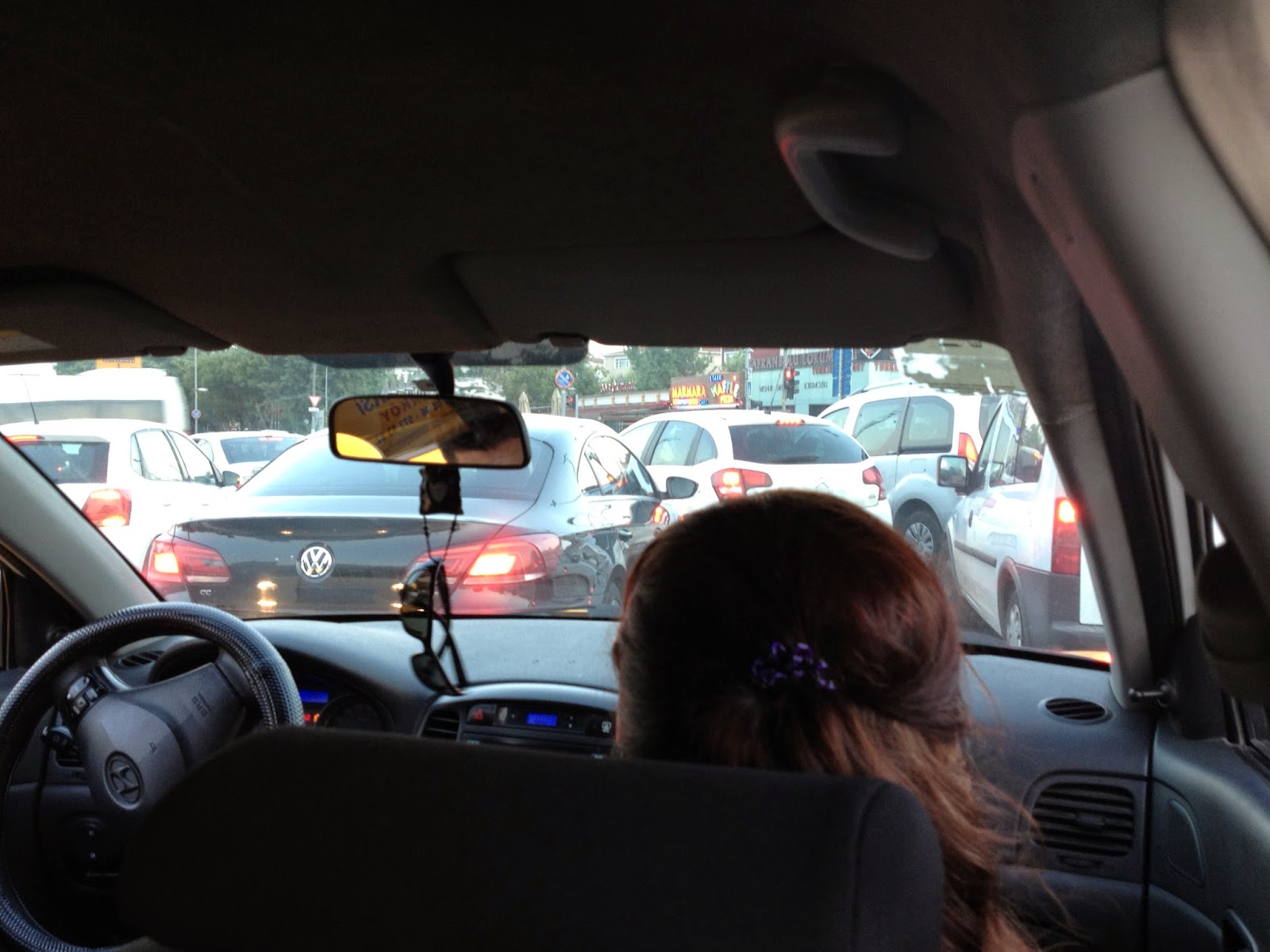 |
| In Beylerbeyi |
On August 10, 2014, for the first time in modern Turkey’s history, the president will be elected by the public instead of by parliament. Citizens will visit their local polling station to unfold their ballots and choose their 12th president. The three-term Prime Minister Recep Teyyip Erdoğan, of the ruling Justice and Development Party (AKP), is considered the candidate to beat. I observed political banners of Erdoğan all over Istanbul with more frequency than I did his competitors, and with the resources of the State behind him he is surely able to be familiar to Turks residing in other countries, numbering 2.8 million according to Today’s Zaman newspaper, now able to vote in Turkish elections for the first time. Erdoğan's image as a “street fighter” for challenging Western countries has made him popular among the lesser-educated Turkish citizens abroad.
 |
| In Bebek |
But Erdoğan's image remains shaky in urban Istanbul. Low voter turnout would be to Erdoğan's advantage, my friends shared. The educated classes are disenchanted with him since the government’s handling of the Gezi Park protests which took place in May of 2013. From what started as a modest sit-in in opposition to an urban development plan in Istanbul’s Taksim Square, the violent eviction of protestors inspired as many as 3.5 million of Turkey’s 80 million people to take part in what became a widely publicized demonstration. Shortly thereafter, Turkey joined China, in blocking Twitter.
“Twitter, schmitter,” Erdoğan was reported on the CBC News site to have said in an angry speech to supporters in the northwest town of Bursa. He vowed to “root out” the social media platform. “I don’t care what the international community says. Everyone will witness the power of the Turkish Republic.” (www.cvc.ca, “Turkey tackles Twitter, comes out bruised” By Sasa Petricic, March 24, 2014).
 |
| This home belongs to a member of Erdogan's family in Beylerbeyi |
Despite Erdogan’s efforts, the penetration rate of Twitter among Turkish internet users is about 30 percent. The Twitter block was originally motivated by politics, after taped conversations were leaked during a corruption investigation, in which Erdoğan was allegedly heard discussing with his son how to get rid of millions of euros. I saw this house (see right) which was raised recently near Beylerbeyi, allegedly built for Erdoğan’s brother-in-law. Older homes around it must abide by the many strict planning rules imposed on homes near the shores of the Bosphorus, where residents cannot even change the size of a window. This modern concrete building stands out like a sore thumb.
My friends Nükte and Vincent were drawn to the Gezi unrest, as many secular Turks were, as it inspired hope that Turks had found their pulpit for civil rights and democracy. Compared to the Occupy movement, the Gezi Park protests galvanized both left and right-leaning Istanbuli Turks. Nükte relayed to me an encounter she had with a local policeman on the ferry boat on their way back from Taksim Square, her face still burning from tear gas. He expressed his own bewilderment on being at the other side of the protest, and described the round the clock shifts he worked alongside a police force that was bussed in from Anatolia to face protestors.
 |
| I asked about the baby. No one knows who it is. |
Turkey’s experience with a multi-party system is short and riddled with problems. The parliament is largely dominated by the conservative party, with two or three strong parties able to exert some influence, but as many as 30 others that are not electorally successful, resulting in a polarized domestic political environment. The leftist parties, most notable of which is the Republican People's Party or Kemalist Party (CHP) draw much of their support from big cities and coastal regions. Erdogan’s main competitor, Ekmeleddin İhsanoğlu, was hand-picked by the Kemalist and Nationalist Movement (MHP) parties without securing the support of their bases. As a newcomer, İhsanoğlu is relatively unfamiliar to the greater Anatolia, and has cast himself as an independent, vowing to unite the secularists and the Islamists. but many secularists remain skeptical and view the secularism of Kemalist Turkey as at its last breath. Whether a vision of secularist Turkey can be kept alive with Erdoğan at the helm, remains in question.
The third candidate, Selahattin Demirtaş, is a Socialist and represents the People’s Democratic Party (HDP). He is considered to have no chance at all of winning the election. Demirtaş was identified as his party’s candidate late and has very little visibility in the greater city of Istanbul, from what I observed.
Voting was at one time mandatory in Kemal Ataturk’s Turkey, with turnout rates still hovering close to 80%. (http://www.idea.int/vt/countryview.cfm?CountryCode=TR). Many view Erdoğan's election as a sure thing, and won’t bother to vote. And yet, with the memory of Gezi still fresh, perhaps they will speak.
 |
| Source: wsj.com, July 10, 2014 |
 |
Erdoğan sent this spam propaganda text Sunday wishing customers of this particular phone service a
Happy Bayram. Others got similar messages from the opposition candidate İhsanoğlu.
|
.jpg) |
| Taksim Square, May 2013 |















































